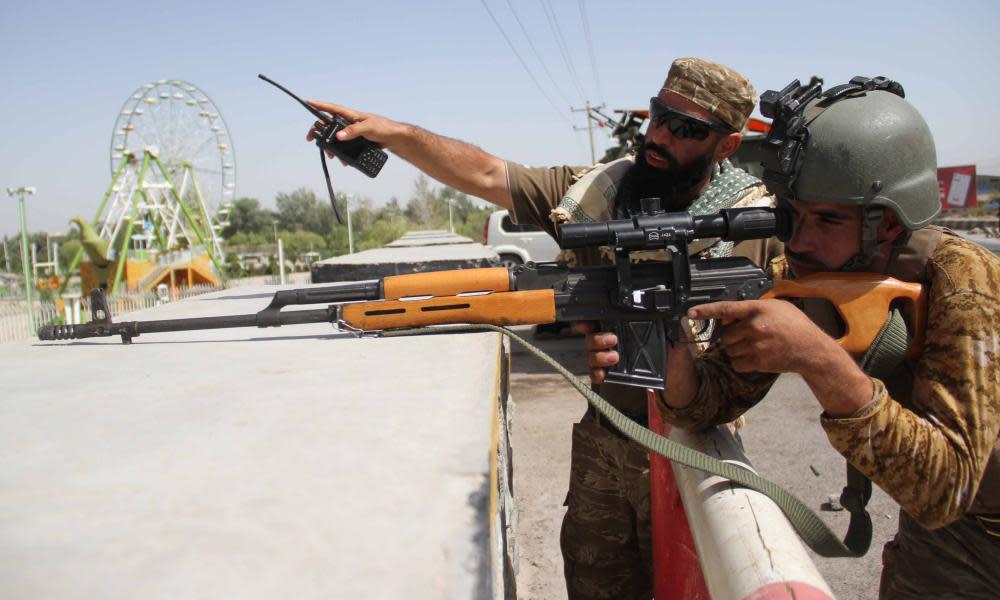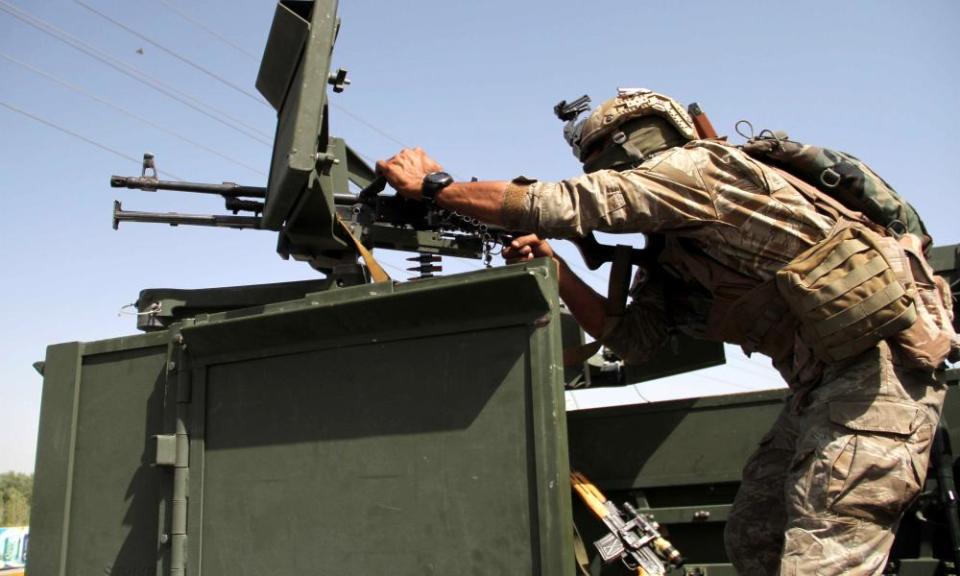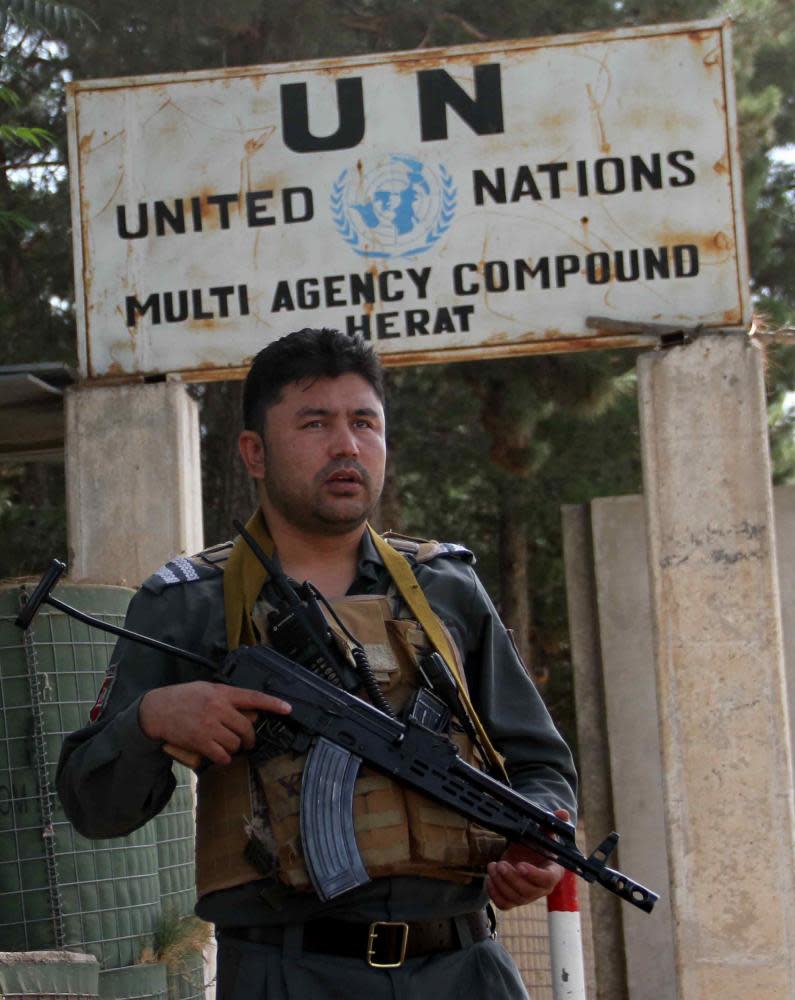Herat residents fear Taliban in their homes and workplaces as it masses outside city

Organisations in the western Afghan city of Herat have begun removing important documents because of fears they could be used to target employees if seized by the Taliban, after three days of fighting raged around the city.
Herat airport was closed by battles around its perimeter, militants attacked a UN compound, killing a guard, and half the city was without power after electricity lines from Iran were damaged in the fighting.
A key bridge on the road to southern Afghanistan changed hands several times in the fighting, and the Guardian spotted a Taliban checkpoint on the outskirts of Herat municipality on Friday afternoon.
“The distance between life and death is now that police ranger over the bridge,” one resident wrote on Facebook on Friday, below a picture taken out of her window. She then deleted the post as the Taliban advanced further towards the city.

Herat is now effectively under siege, as border crossings to Iran and Turkmenistan had already been seized by the Taliban. The airport had been the only way out.
Many in the city are now preparing for a worst-case scenario of militants in their homes and workplaces.
“My boss gathered his employees this morning and asked us to take important documents home, fearing the Taliban would burn them or use them to find and target staff,” a government employee told the Guardian.
“Some took them but I refused – I’m scared these documents could be a death warrant for me.”
The Taliban has swept across Afghanistan since launching a campaign in May, seizing swathes of rural territory. Its forces did not initially target major cities, but are now threatening several beside Herat.
This week the militants attacked two cities in the south, reaching into the centre of Kandahar and massing outside Lashkar Gah in Helmand, where government forces called an airstrike that destroyed a 10-bed hospital.
Officials said it had been seized by the Taliban to treat its wounded fighters. Sher Ali Shakir, provincial public health director of Helmand, said the hospital was destroyed, one person killed, and two wounded, AFP reported.
In Herat, government forces were fighting alongside the men of Ismail Khan, a septuagenarian veteran of several iterations of civil war in Afghanistan, and American bomber planes provided airstrikes.
Khan was on the Herat frontline on Saturday morning and criticised the government for not sending reinforcements to the city.
“President Ashraf Ghani talked with me yesterday and according to his orders we should have received reinforcements last night, but the defence ministry has not sent us anything yet,” Khan said.
Desperate residents have been fleeing their homes in both Gozara and Injil districts, the focus of fighting on the outskirts of Herat, since Wednesday. Shops were closed in southern parts of the city as sporadic gunfire was heard in the region about noon on Saturday.

On Friday the UN said insurgents attacked their compound in Herat with rocket-propelled grenades and gunfire, killing a guard. The Taliban denied targeting the compound or its diplomats, claiming it was hit in crossfire.
The attack was condemned by UN secretary general António Guterres and US national security advisor Jake Sullivan.

 Yahoo News
Yahoo News 
